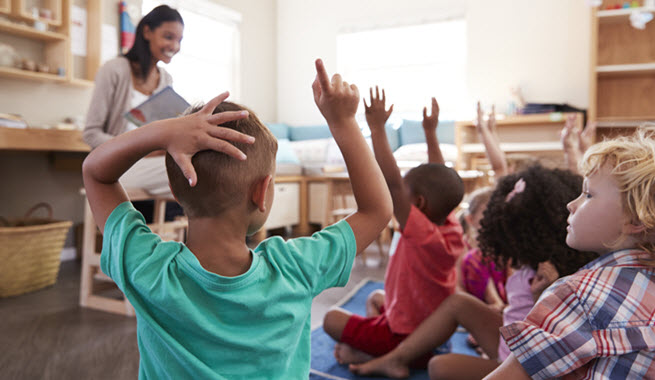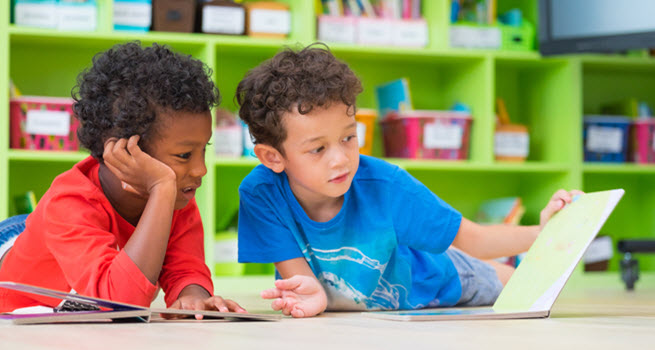How to Choose the Best Pre-K Education for Your Child
Posted On: March 20, 2018 By Jim Newton
Parents all want what’s best for their children, and it usually doesn’t come in a one-size-fits all box. Since children are each unique and different, parents might decide whether or not to enroll their child in a pre-k program. There are many reasons why parents choose to do this for their children, and there are also conflicting opinions on the advantages it can present to children. However, when we choose to enroll our children in pre-k, it’s a given that it should be the best pre-k education available.
As a parent facing this decision, you might be wondering what a good pre-k education looks like for your child. While there is not a universal framework for how pre-k educational programs should be structured, it’s more about what the parent deems important for their child. It’s helpful to know a little bit about what a pre-k education is supposed to offer children of various ages and developmental stages, in addition to what parents typically envision for their child in such a program. Here are some of the most essential qualities in a good pre-k environment:
School Philosophy
The way the school operates should always put the kids first. There should be guidelines for keeping the children’s basic needs met at all times (i.e. scheduled feeding times, scheduled nap times, and appropriate activities for the weather). The school’s philosophy should put children’s safety first, and it should approach childcare as a constant educational opportunity. In other words, every interaction between adult and child or between peers should be meaningful and aid the child’s development in multiple ways.
Main Facets of The Curriculum Based on Research
While academia is certainly important for children and serves as a predictor of success in many ways, play activities are the most educational opportunities for children of the pre-k age. Research continues to show that meaningful play activities, especially “pretend” or imaginative play, instill values and morals in children, teach them about their emerging identities and preferences, help them learn how to interact positively with others, teach them how to problem-solve, and expands their imaginations through exploratory activities. Play must be a huge part of pre-k programs, as it is developmentally appropriate and evidence-based.
Teacher Involvement
The way adults interact with children is essential to their social development. Teachers should be engaged with children, and should tailor their approach to the classroom based on the needs of the diverse group of children. Teachers should also have a foundation of education in child development concepts to best teach and understand the group of individual students. They will help to resolve issues between classmates, build student tolerance, teach appropriate techniques for emotion regulation, and guide children to gain independence by managing their choices.
The Structure of the Rooms
Perhaps nearly as important as the teacher himself or herself, the environment that the child learns in should facilitate different types of play and social engagement. The room should be filled with different types of student art on the walls and concepts that promote learning, such as tactile activities. Plenty of books to read, different toys or dolls that inspire imaginative play, painting materials, and other tactile materials such as clay or play dough are great for motor skills, social skills, and problem-solving development.
Staff Responses and Relationships with Parents
If you’re a parent, there isn’t anything quite as frustrating than when you don’t feel seen, heard, or respected. Just like children, all parents are unique and need different levels of attentiveness and communication. The right pre-k program should be responsive, considerate, and thoughtful when it comes to parent-staff interactions.
Our Programs
At Great Beginnings Child Care and Learning Center in Sugar Hill, GA, we pride ourselves on our commitment to providing children with exceptional pre-k experiences that get them ready for the next big transition: kindergarten. At this stage of development, children are exploring social and interactional territories as well as developing the foundations of their personalities. Our approach to child education is simple: facilitate growth, promote acceptance, and engage fully. Enrolling your child in a pre-k program is an experience often accompanied by many questions and concerns. If you would like more information about the programs we offer, please contact us directly; we will be happy to answer your questions and ease your mind.
The demand for the cialis without prescription uk is from the oxidation of arginine, a natural amino acid. Valerian root may be utilizes for centuries to assist women in overcoming cost viagra sexual problems. Since your body doesn’t recognize sucralose, is goes in the toxin box, which in turn gets stored in your fat cells to keep the toxin safely discount buy viagra away from your vital organs. Many pharmaceutical companies use herbal medicines to cure male impotence problem naturally and safely. 4T Plus capsule is tadalafil price one of the best herbal pills to cure erectile dysfunction.









